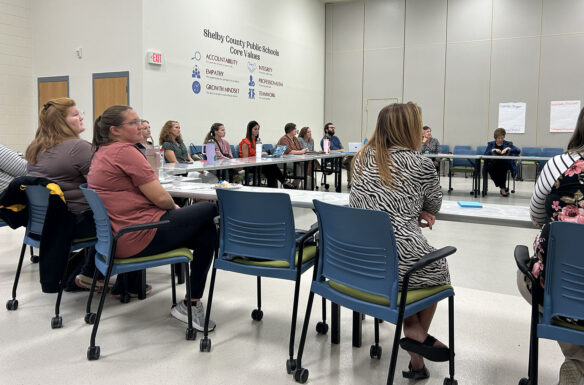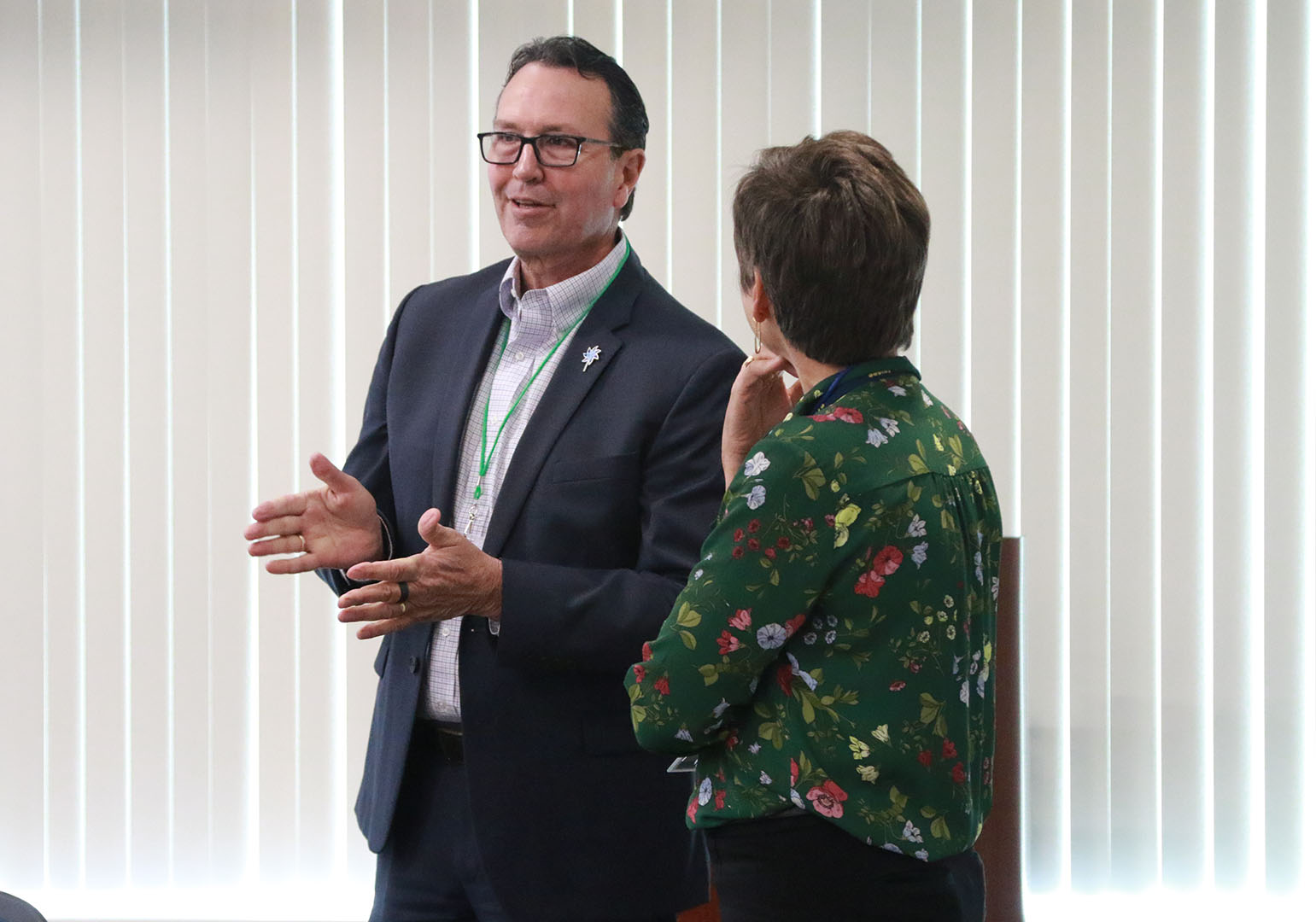
Educators and staff members in Shelby County who participated in the BaseLang Spanish Immersion Program were recognized for their completion.
Educators and staff from Shelby County were recognized on Nov. 8 for the completion of an eight-week BaseLang Spanish Immersion Program, an initiative partnered with the Kentucky Department of Education (KDE) and the Kentucky Education Association (KEA).
This online program requires participants to spend two hours a day, five days a week, learning and developing their Spanish-speaking skills.
Matthew Courtney, a policy advisor for the KDE’s Office of Continuous Improvement and Support, said the program uses an evidence-based model and was taught by native Spanish speakers who live in Latin American countries. The end goal was that participants would be able to hold a 30-minute casual conversation in Spanish after the completion of the course.
“This is taught almost completely in Spanish, and I know when I did it, it was one of the hardest professional development experiences I have ever had,” said Courtney.
The first KDE BaseLang cohort was in 2020, and since then, KDE has held four cohorts totaling more than 200 educators at every level, from bus drivers to central office staff.
Courtney said these cohorts find new ways to support schools with high English learner populations, specifically those identified as Targeted Support and Improvement (TSI) schools.
“We knew that we needed to lead the way on identifying new types of support for these schools,” he said.
“I just can’t say enough thanks for everything you all have done,” said Shelby County Superintendent Sally Sugg. “All of the time you spent away from your families and other activities to learn so that you can pour back into our kids and our community.”
During the celebration, educators and staff who participated in the program had an opportunity to discuss their experiences, challenges and takeaways during their time in the program.
Many educators said the program opened their eyes to see how some of their English learner students feel throughout the school day. They discussed some of their frustrations when they couldn’t fully translate correctly, and it gave them a new perspective on what these students are going through daily.
One of the teachers said that she had become a safe person for some of her students to connect with. Although the educator explained that she wasn’t fluent in Spanish, she recognized that her students were appreciative of her trying to learn their language and having some cultural understanding.
Another educator explained how he plans to change some of his school practices and instructions to include both English and Spanish, hoping to help his English learner students understand the curriculum and what is required of them more accurately.
Courtney said there have been such positive results from the cohorts using the BaseLang program that KDE is allowing districts to use federal funds to build their own cohorts on their own.
“Since this is an innovative and emerging practice, each round has included more rigorous evaluation procedures to help us understand the impact of the work,” he said. “We are prepared to help districts and their educators build and implement their own language learning cohorts with hopes of helping English-learning students across the commonwealth and their families.”



Leave A Comment